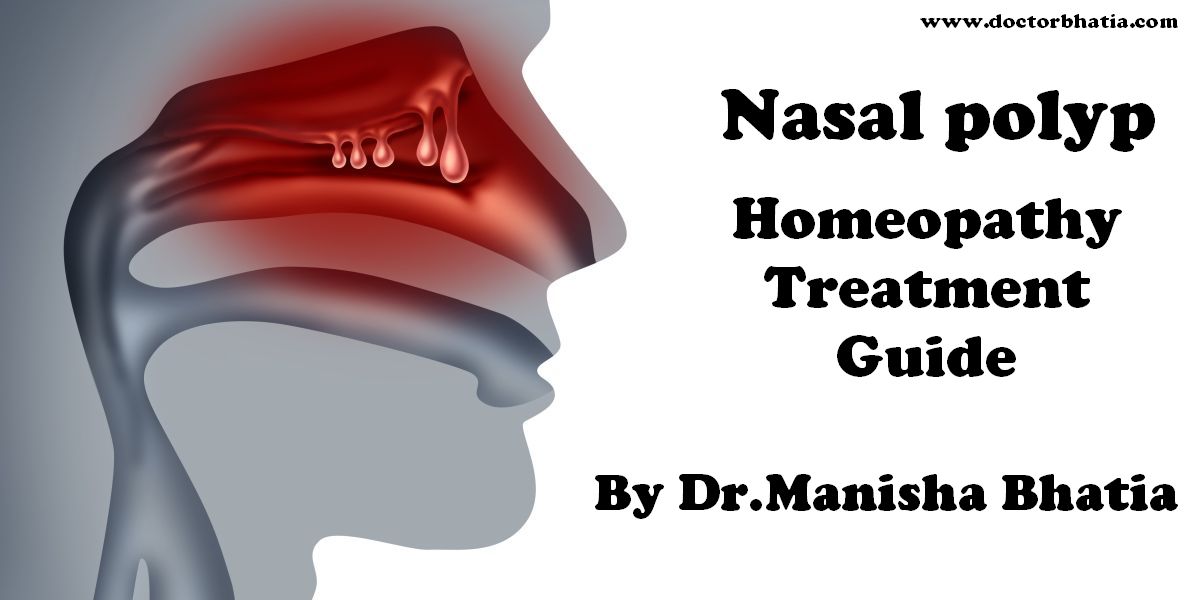Nasal polyps are polypoidal masses arising mainly from the mucous membranes of the nose and paranasal sinuses. They are overgrowths of the mucosa that frequently accompany allergic rhinitis. They are freely moveable and non-tender. Nasal polyps are usually classified into antrochoanal polyps and ethmoidal polyps. Antrochoanal polyps arise from the maxillary sinuses and are much less common, ethmoidal polyps arise from the ethmoidal sinuses. Antrochoanal polyps are usually single and unilateral whereas ethmoidal polyps are multiple and bilateral. Symptoms of polyps include nasal block, sinusitis, anosmia (that is, loss of smell), and secondary infection leading to headache.[1]
The pathogenesis of nasal polyps is unknown. Nasal polyps are most commonly thought to be caused by allergy and rarely by cystic fibrosis although a significant number are associated with non-allergic adult asthma or no respiratory or allergic trigger that can be demonstrated.
These polyps have no relationship with colonic or uterine polyps. Irregular unilateral polyps particularly associated with pain or bleeding will require urgent investigation as they may represent an intranasal tumour.
Nasal polyps are most often treated with steroids, topical or oral, but can also be treated with surgical methods.
Pre-post surgery, sinus rinses with a warm water (240 ml / 8 oz) mixed with a small amount (teaspoon) of salts (sodium chloride & sodium bicarbonate) can be very helpful to clear the sinuses. This method can be also used as a preventative measure to discourage the polyps from growing back and should be used in combination with a nasal steroid.
The removal of nasal polyps via surgery lasts approximately 45 minutes to 1 hour. The surgery is done under anesthesia, and the polyps are removed telescopically. Recovery from this type of surgery is anywhere from one to three weeks.
Mometasone furoate, commonly available as a nasal spray for treating common allergy symptoms, has been indicated in the United States by the FDA for the treatment of nasal polyps since December 2004.
Homeopathy Treatment for Nasal polyps
Keywords: homeopathy, homeopathic, treatment, cure, remedy, remedies, medicine
Homeopathy treats the person as a whole. It means that homeopathic treatment focuses on the patient as a person, as well as his pathological condition. The homeopathic medicines are selected after a full individualizing examination and case-analysis, which includes the medical history of the patient, physical and mental constitution, family history, presenting symptoms, underlying pathology, possible causative factors etc. A miasmatic tendency (predisposition/susceptibility) is also often taken into account for the treatment of chronic conditions. A homeopathy doctor tries to treat more than just the presenting symptoms. The focus is usually on what caused the disease condition? Why ‘this patient’ is sick ‘this way’. The disease diagnosis is important but in homeopathy, the cause of disease is not just probed to the level of bacteria and viruses. Other factors like mental, emotional and physical stress that could predispose a person to illness are also looked for. No a days, even modern medicine also considers a large number of diseases as psychosomatic. The correct homeopathy remedy tries to correct this disease predisposition. The focus is not on curing the disease but to cure the person who is sick, to restore the health. If a disease pathology is not very advanced, homeopathy remedies do give a hope for cure but even in incurable cases, the quality of life can be greatly improved with homeopathic medicines.
The homeopathic remedies (medicines) for treatment of nasal polyps given below indicate the therapeutic affinity but this is not a complete and definite guide to the homeopathy treatment of this condition. The symptoms listed against each homeopathic remedy may not be directly related to this disease because in homeopathy general symptoms and constitutional indications are also taken into account for selecting a remedy. To study any of the following remedies in more detail, please visit the Materia Medica section at Hpathy.
None of these medicines should be taken without professional advice and guidance.
Homeopathy Remedies for Nasal polyps :
agra., all-c., alumn., apis., arum-m., aur., bell., cadm-s., calc., calc-i., calc-p., carb-s., caust., con., form., graph., hecla., hep., hydr., kali-bi., kali-i., kali-n., kali-s., lem-m., lyc., med., merc., merc-c., merc-i-r., nit-ac., phos., puls., psor., sang., sang-n., sep., sil., staph., sulph., syc-co., teucr., thuj., wye., zinc-chr.
References
- ^ eMedicine – Nasal Polyps : Article by John E McClay, MD


